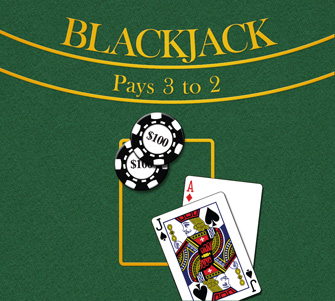The MIT Blackjack Team
The Basis for the 21 Movie
The MIT blackjack team, formed in the early 1990's, was a group of collegiate MIT gamblers that used mathematics to beat the house at the game of blackjack. A campus club turned serious underground blackjack ring comprised of MIT students, the MIT blackjack team formed a quick-witted crusade to pinpoint and take advantage of casino vulnerability.
No card scam has been as infamous and calculated as the MIT card counting heist that the MIT blackjack team employed in a high stakes bamboozle at which they bilked Vegas circuits for millions of dollars in smart and daring card playing. Based on keeping a running tally of cards dealt, a sharp blackjack player's trick was counting cards to secure Vegas wins nearly every time played.
Organized gambling took quite a blow to its ego during the 90's when this youthful and smart collective began to distribute itself on the Strip. Forming in Cambridge apartments, classrooms, and underground rings, the MIT blackjack team was a finely polished group of the savviest academic mind. They were working as a mass to beat over casinos with their brains in the only game with a deficiency due to human foible - blackjack. Plugging into the system of card counting, the MIT blackjack team trained themselves as a business operation, the base of which was a non-traditional card counting system using highs and lows rooted in statistics and mathematical theory. Designing a computer program to fine-tune their strategic playing, the team brought card counting into the technology age and used simulated casinos, skill tests for distraction and harassment during play, and strenuous study to advance their technique. Traveling as complete strangers under aliases and relying on investors to foot the scheming Vegas weekends with the promise of financial return, the MIT card counting team manipulated casinos to the tune of millions, with one legend-worthy weekend net of over $400,000. From straight-laced college students at a top-ranked private U.S. higher ed institution to suave alternative personalities on the weekends, the team gambled its way through a mighty reign that included the best hotel suites, musical and sporting events, and five-star treatment from the Sin City.
But their blackjack strategies and efforts weren't entirely foolproof. Small human error of fraternization, sloppiness, and a decline in wins, all combined with the casino's profiling, began to unravel the team's work after a few short years. Card counting was not unknown to the Las Vegas tables prior to the infiltration from the MIT card counting team. Ironically, the technology that the team had used to secure massive winnings was the same technology that lead to the team downfall, when casinos were growing more advanced at detecting and monitoring the card counters. Typically, once a counter had been marked, casino bosses would make the table so uncomfortable to play that hands could not be won. However in the case of the MIT blackjack team, the card counting and house beating winnings were of such great sums that the players were immediately banned once identified. The reoccurring faces that were kept under surveillance by Strip security like the Griffin Agency, were linked through mistakes linking the players to home addresses back in Boston and later were confirmed by comparing video monitoring to school yearbook photos. The Cambridge scam had met its end.
While the MIT blackjack team invested the right amount of effort in learning the trade of counting cards to beat blackjack, sloppiness and an overall failure to master the inner-workings of casinos was how they fell apart. Schooling themselves on the objectives and strategies of winning through card counting only carried the team so far. Initial wins were easy but were not enough of an entire package to keep the momentum and money rolling.
See also:

 Slots Capital
Slots Capital


